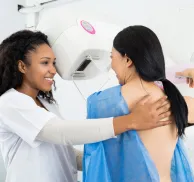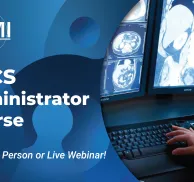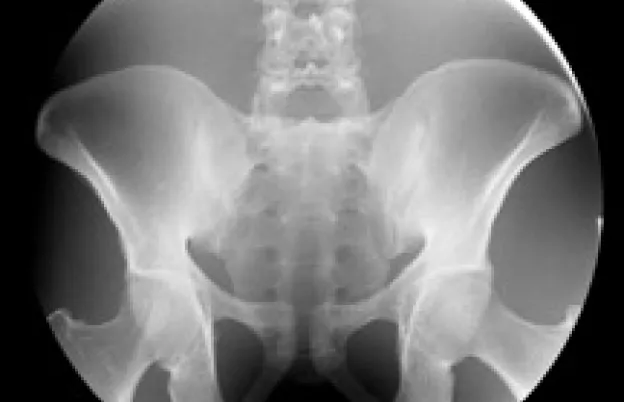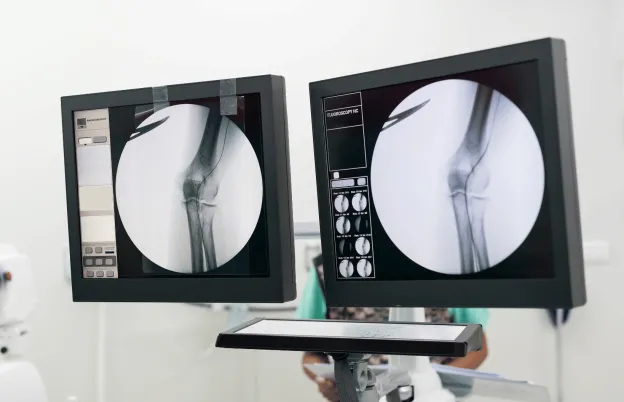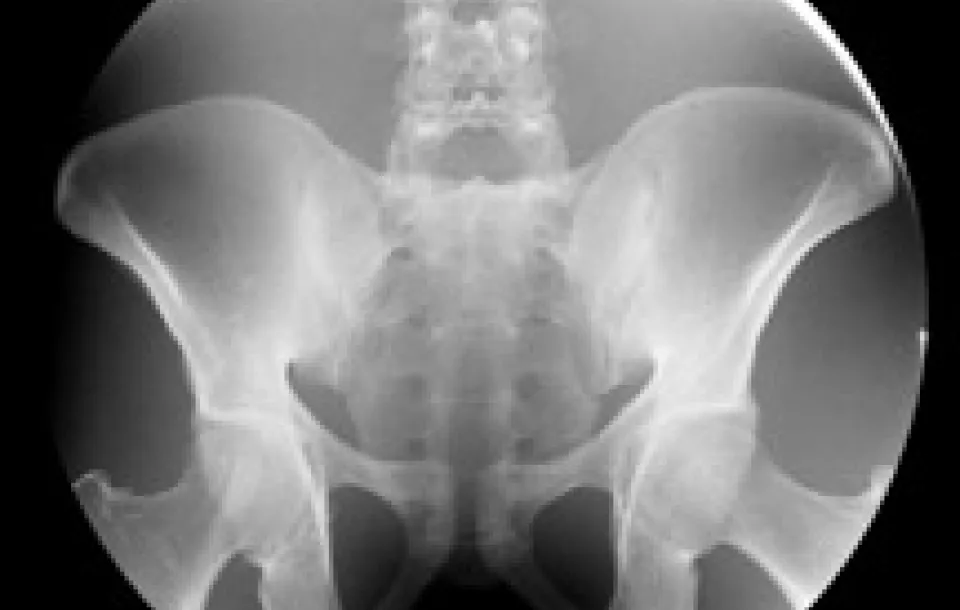
Hands-On Fluoroscopy Testing Workshop
About this Program
This fluoroscopy training and testing workshop provides an in-depth review of state-of-the-art fluoroscopic equipment technology and appropriate methods of assessing image quality, machine performance and patient dosimetry. Medical physicists, as well as medical physicist assistants and radiologic technologists, play a key role in assuring the fluoroscopy systems are performing well and that radiation dose to the patient and personnel is managed appropriately.
Criteria for assessing patient exposure levels, potential biological responses, management of fluoroscopy radiation safety, quality control and performance measurements are addressed in didactic lectures and demonstrated in hands-on fluoroscopy course sessions. An experienced medical physics faculty will provide practical hands-on demonstrations of fluoroscopic machine performance tests and results evaluation of several manufacturers' fluoroscopy systems.
The first day is a comprehensive review of the physics of clinical fluoroscopy systems. All presentations will be lectures accompanied by electronic fluoroscopy course material.
The second day consists of five hands-on laboratory sessions. Medical physicists and other attendees will be divided into small groups and rotated through each of the five hands-on fluoroscopy CE lab sessions. Testing procedures and safety practices will be demonstrated for various fluoroscopic systems from multiple manufacturers – including GE, Siemens, Philips, Medtronic and Hologic.
Educational Objectives
Upon completion of this fluoroscopy course, you should be able to:
- Review current fluoroscopy system technology
- Understand the techniques for assessing image quality
- Demonstrate insight into fluoroscopy image post-processing and advanced imaging techniques
- Perform procedures for conducting and evaluating the annual fluoroscopy unit inspection
- Describe techniques for ensuring adequate radiation safety for fluoroscopy systems
- Demonstrate how to measure, monitor and track patient radiation doses
- Perform hands-on demonstrations of testing a variety of fluoroscopy systems typically found in a hospital setting
- Discuss techniques for teaching a Hands-on Fluoroscopy class to clinical staff (i.e. Train-the-Trainer)
- Operate a fluoroscopy system, a patient dosimetry system
- Describe methods/techniques the instructors used to effectively teach fluoroscopy safety concepts and principles to clinical staff
The instructors who lead our workshops, including our fluoroscopy CE sessions, are true professionals with years of experience in their fields. They are ready, willing, and able to share their expertise with you, from quality control insights to practical use of fluoroscopy equipment.
Interested in earning CAMPEP or ASRT Category A credits? In addition to helping prepare you to excel in the field of radiographic imaging, this fluoroscopy training program provides the opportunity to earn hours of CAMPEP or ASRT CE (continuing education) credits.
~ AAPM endorses the educational component of this program. ~
It does not however, endorse any
product used or referred to in the program.
Schedule
What this course will cover
In just two days, this use of fluoroscopy workshop covers everything you need to build upon your radiography and fluoroscopy radiation safety expertise.
| Day One | |
| 7:15 am | Registration and Coffee |
| 7:50 am | Welcome and Course Overview |
| 8:00 am | Review of Fluoroscopic Systems |
| 9:30 am | Informal Discussion and Break |
| 9:40 am | Fluoroscopic Image Quality |
| 10:10 am | Clinical Applications |
| 11:40 am | Questions and Discussion |
| 11:50 am | Lunch (provided) |
| 12:30 pm | Fluoroscopy Performance Evaluation/Testing |
| 2:00 pm | Radiation Safety in Fluoroscopy |
| 3:30 pm | Informal Discussion and Break |
| 3:40 pm | Managing Patient Dose |
| 4:50 pm | Peak Skin Dose Calculations |
| 5:50 pm | Training Fluoroscopy Users |
| 4:50 pm | Licensure and Credentialing in Fluoroscopy |
| 6:20 pm | Introductions to Lab Sessions |
| 6:30 pm | Adjourn for the Day |
| Day Two | |
| 7:00 am | Coffee |
| 7:30 am | Lab Session One |
| 9:00 am | Lab Session Two |
| 10:30 am | Informal Discussion and Break |
| 10:50 am | Lab Session Three |
| 12:20 am | Lunch (provided) |
| 1:00 pm | Lab Session Four |
| 2:30 pm | Lab Session Five |
| 4:00 pm | Informal Discussion and Break |
| 4:20 PM | Discussion and Wrap - Up |
| 4:30 pm | Adjourn Workshop |
Audience
Who should attend?
This fluoroscopy course offers an in-depth review of the physics of fluoroscopy systems as well as the opportunity to earn CE (continuing education) credits. Medical physicists, technologists, medical physics residents and students, medical physicist assistants and any vendor personnel who work with these systems can all benefit from the insights provided through this fluoroscopy training. Experienced QC technologists looking for more understanding of fluoroscopic QA testing may also find the workshop of value.
Program Faculty
Meet your presenter(s)
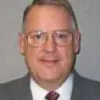
Jerry A. Thomas
MS, DABR, CHP, DABSNM
Jerry A. Thomas is a diagnostic medical physicist at the Ascension Via Christi Hospital in Wichita, KS. Jerry holds a Master of Science degree in Radiation Biophysics from the University of Kansas and is board certified in Radiological Physics, Health Physics and Nuclear Medicine. He has more than 30 years’ experience in teaching, clinical service and research in many areas of medical imaging including digital breast tomosynthesis. Jerry also has extensive experience teaching technologists and students on medical imaging topics. MTMI is proud to have Jerry serve as an instructor for this important new diagnostic capability and share his knowledge with you.
Doug Pfeiffer
MS, FACR, FAAPM
Medical Physicist/Radiation Safety Officer
Boulder Community Health
Boulder, CO
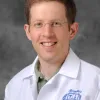
Matt Vanderhoek
PhD
Matt Vanderhoek is an Imaging Physicist in the Department of Radiology at Henry Ford Health in Detroit, Michigan and Assistant Professor-Research in the Department of Radiology at Michigan State University. He has 14 years of experience in imaging physics and he maintains board certification (ABR) in both diagnostic imaging physics and nuclear medical physics. His main areas of focus are fluoroscopy, mammography, and nuclear medicine. He is the program director of the Imaging Physics Residency program at Henry Ford Health. He is also an active member of various committees within the American Association of Physicists in Medicine (AAPM), the American Board of Radiology (ABR), the American College of Radiology (ACR), and the Radiological Society of North America (RSNA).
Brent Colby
MS
Medical Physicist
Sanford Health
Fargo, SD
Jorge Espino
PhD
Clinical Research Scientist, Interventional Cardiology
Office of Science and Technology
GE Healthcare
Credits
Accredited training programs
CAMPEP
This program provides 17.34 hours of continuing education for medical physicists. The program has been approved by CAMPEP for Medical Physics Continuing Education Credit (MPCEC) for qualified medical physicists.
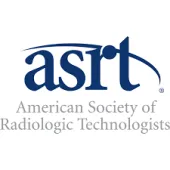
ASRT Category A
This program provides 20 hour(s) of Category A continuing education credit for radiologic technologists approved by ASRT and recognized by the ARRT® and various licensure states. Category A credit is also recognized for CE credit in Canada. You must attend the entire program to receive your certificate of completion.
Tuition
Convenient payment options available
| Audience | Price | Early Price | Member Price | Member Early Price |
|---|---|---|---|---|
| Physicist | $1,165.00 | $1,070.00 | $1,120.00 | $1,025.00 |
| Technologist | $879.00 | $829.00 | $639.00 | $599.00 |
Early Pricing Guidelines
Qualifying 'Early' registrations must be made at least 21 days in advance for the program.
At MTMI, we believe in helping others provide quality care for every patient. We also believe in making high-quality fluoroscopy training accessible for every healthcare professional in need of fluoroscopy CE credits and skill upgrades.
Cancellation Policy
“Hands-On” Courses
Refunds, minus a $50 processing fee, will be granted for cancellations received prior to 10 days before the program. Cancellations received within 10 days of the program will receive a credit toward a future MTMI program, minus the $50 processing fee. No refunds will be made after the program starts. MTMI reserves the right to cancel any scheduled program because of low advance registration or other reasons. MTMI’s liability is limited to a refund of any program tuition paid. MTMI recommends that attendees use refundable airline tickets. In case of cancellation of a program for any reason, MTMI is not responsible for travel costs incurred by attendees including non-refundable airline tickets.
